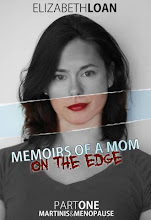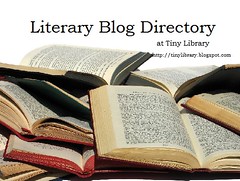Well, I finally did it. I finished ANNA KARENINA. I started it in late July. Since I read it on my Kindle, I have no idea if that is an acceptable time frame for finishing. If you don't own a Kindle, everything goes by percentages. For example: page 28 would be viewed as 5% or 10% or any other percent based on how long the book is. This is a curse & a blessing. With a typical book, say anything 300 pages or less, my percentage to time left ratio is fairly accurate; however, with a mega novel like ANNA KARENINA--not so much. Once I hit the 98% mark, it still took close to a week to read to the end.
Ackk!
Since this book is considered to be one of the *greats* I'm not going to go through with my typical graded review. I mean really, it's Tolstoy people. What could I possibly have to say about a book written by Tolstoy that would be of any value to anyone? Instead, I will give you my thoughts (those are always interesting, right?) pretending I know nothing of the gravity of the book. Consider me a babe in arms, with no knowledge of literary classics (not much of a stretch), no knowledge of Russian history...or any history beyond what I learned in high school (okay, I admit, this is true), and the attention span of a gnat who just ingested a Starbucks double shot.
Above all, try to keep a sense of humor. To do otherwise will only serve to make you hate me in the worst way.
What I learned from reading Anna Karenina:
1. People talked, wrote, and thought in the longest, most convoluted ways. If Tolstoy wrote (I'm speaking only of sentence structure here) the same book today, his editors would be having fits. I'm talking serious, Grand Mal seizures. I certainly didn't mind the long winded, semi colon filled conversations; but considering the last five Literary Agents I spoke to told me that long, complicated, wordy writing was a no-no...I'm thinking he'd be self published for sure.Of course, this is true of all period writing, since styles change to give an accurate portrayal of current times.
2.Details were mega important. If you like a fully detailed scene from every possible angle, this book will rock your socks off. I like details. I also believe that there is such a thing as over kill. Chapters devoted entirely to harvesting fields in Russia fall into the latter category. I like that type of detail to be a page or two at most. I fell asleep a few times while Levin was pontificating about the role of the peasant in Russian society. I know how terrible that sounds. If you're offended by my lack of cooth, please re-read the above preface to this review, as I will not apologize.
3. If you happened to be of any wealth or means (and you were a man), your life was AWESOME. In the upper echelon of Russian society, life was one big party. Even the fake rich (Dolly & Stepan) had nurses, cooks, country houses, land...you name it. Work consisted of going to an office where people came to ask you if you would grant them wishes, etc, and every night you would stay out until one or two in the morning. Dinner parties happened every night of the week, as did the opera, and nobody exchanged much cash.
4. Everyone was given at least three names, which were all interchangeable, depending on mood/whims/relationship and the person speaking. I'm sure there is cultural/period/class significance here. No need to explain. I only wish this held true today. I'd love to be known as: Elizabeth Loan, Elisabetta Burkano Manifesto AND Elsie Love...how cool would that be?
5. The rich, in spite of all their wealth, were pretty miserable. AS a reader who would have fallen into the peasant class, I can't help but feeling these people just needed more to do. In other words, if you can spend entire months in 'spiritual crisis' during the 1800's, you needed some good old fashioned real work! BTW, I find this to remain true today. :)
6. Lastly, Anna, Anna, Anna...what can I say? I loved her and I hated her. The scene where she visits Seryhoza on his birthday brought me to tears; but to jump in front of a train for the lost love of a man? No, I cannot accept that.Where does her death leave her son...her daughter? I found myself trying to diagnose her. Was she suffering from PPD? Bipolar disorder? Severe Narcissism? Did she really truly believe her death would teach Vronsky the ultimate lesson?
In the end I decided she was part of Tolstoy's twisted soap opera (the book was originally done in installments. I love this because: a. it tells me that people have always loved scintillating scandalous material and b.even the greats produced in small bites from time to time) unable to fathom life without her one great love.
Not quite the heroine I was looking for. Although I give her bonus points for having the courage to follow her heart.
And that my friends, is my take on ANNA KARENINA.
(free on Amazon.com for kindle)
Have an excellent weekend. Until next time,
Cheers!
Friday, September 30, 2011
Subscribe to:
Post Comments (Atom)












I'm glad you enjoyed it, I loved it when I read it earlier in the year. It reminded me of Gone With The Wind in some ways and was well and truly epic! A twisted soap opera is a good way to describe it :P
ReplyDeleteAdmittedly, I haven't read Anna Karenina. I would say 'yet' but I'm not entirely sure that I'll get around to it! So it's really wonderful to read your impression of it - now I know a bit about it if it ever pops up in conversation :)
ReplyDeleteI Agree with Sam...GONE WITH THE WIND! I loved that book...really loved it. Never enjoyed the movie though. Hmmm.
ReplyDeleteWhat surprised me more than anything, about all the classics, is the theme of love. Whether it's unrequited or it all works out in the end, From Austen to Tolstoy, it's all about the L word! And who knew divorce existed in the 1800's? Certainly not me!
Dare I admit I've never read 'Anna'? Shameful, I know. I might now, though! Thanks for the review.
ReplyDelete